
Produce Exceptional Content Using AI
AI can assist in content creation, from ideation to article writing and generating unique images. While this development in artificial intelligence is thrilling, it also raises ethical and legal questions, along with concerns about potential job displacement.
Produce Exceptional Content Using AI
- Copy.ai
- Jasper.ai
- Writesonic
- Copysmith
- Nation AI
- Grammarly
1.Copy.ai
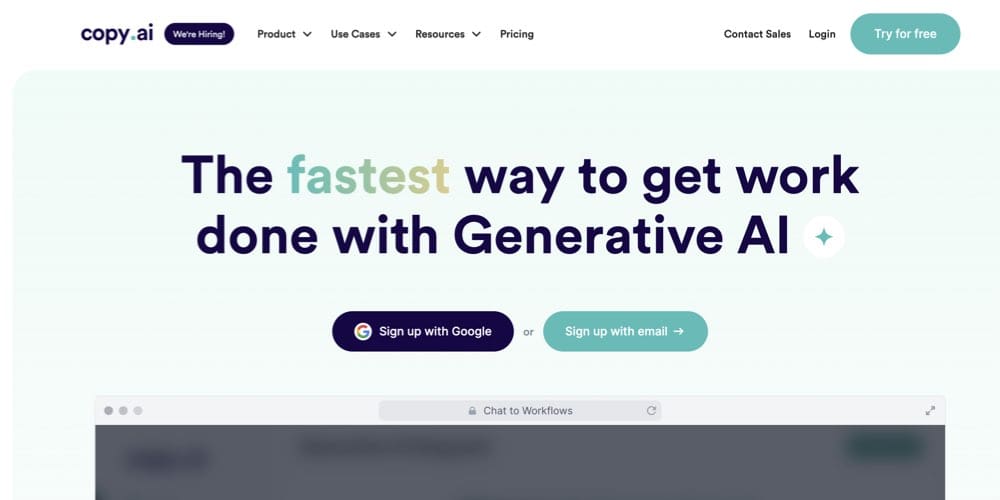
Copy.ai is an outstanding tool for content creation, providing a vast array of content templates in various languages. Renowned for its copywriting capabilities, it also excels at generating longer pieces, such as blog posts.
2.Jasper.ai
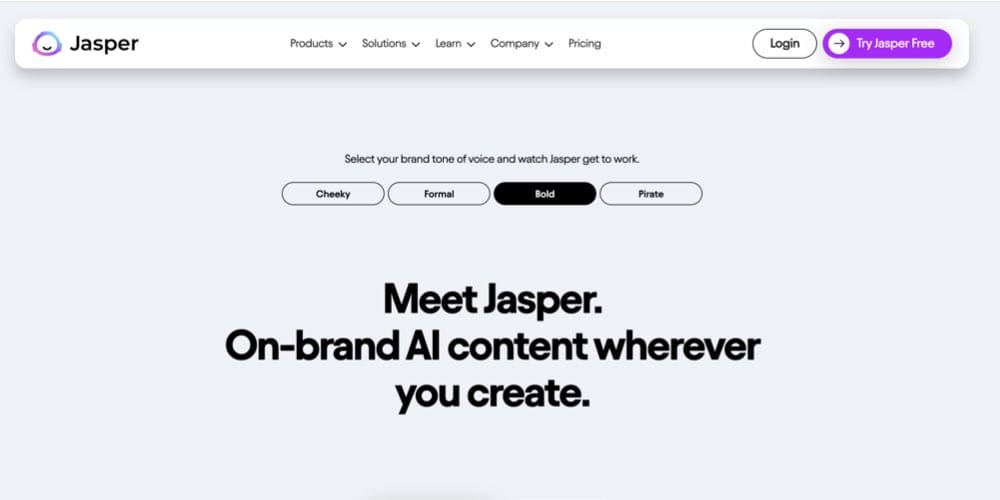
Jasper is a versatile AI-powered tool for content creation, boasting more than 50 templates designed to meet diverse content requirements, from crafting social media profiles to generating e-commerce product descriptions.
3.Writesonic
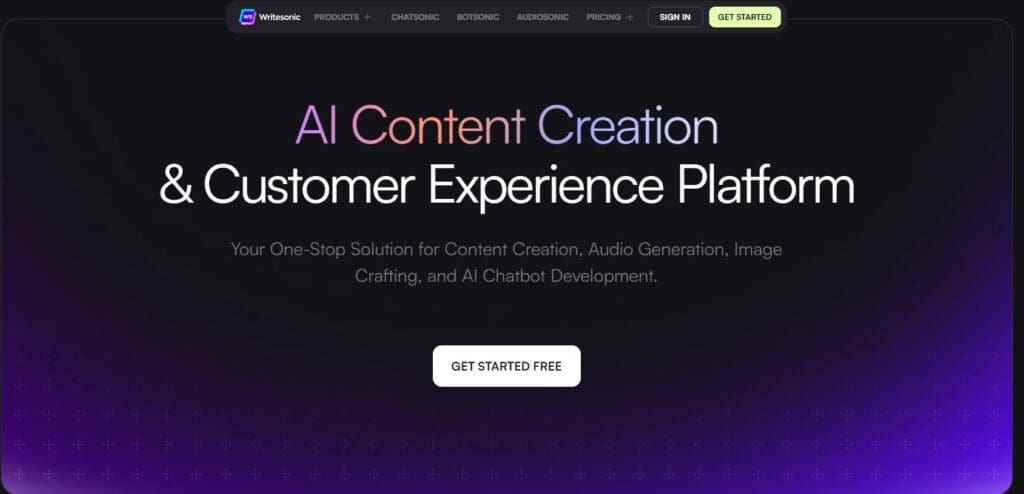
Writesonic is a flexible AI content generation platform capable of producing a wide array of content types, from blog articles and landing pages to Google Ads, Facebook advertisements, and product descriptions. It also features the advantage of offering free text generation, rendering it an invaluable tool for businesses seeking to harness AI for the creation of textual content.
4.Copysmith
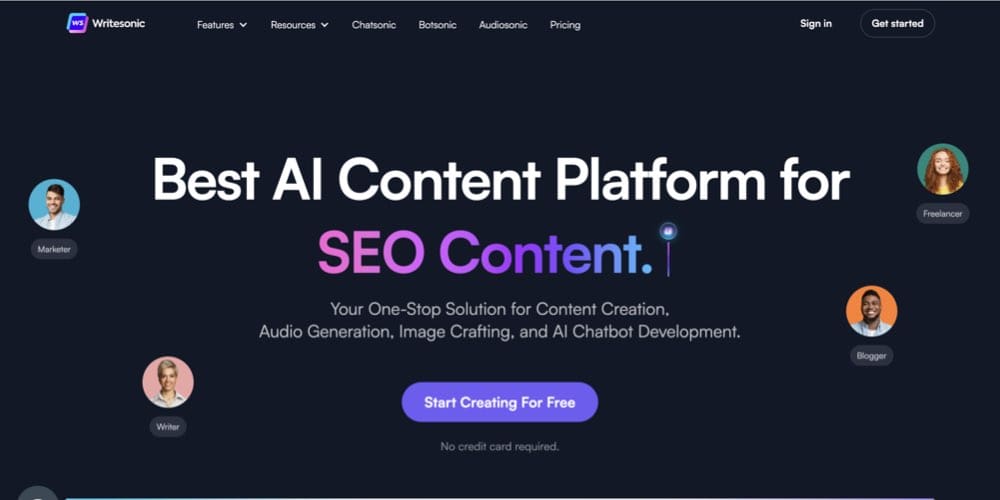
Copysmith is an exceptional AI-powered tool tailored for crafting concise content like ad copy, product descriptions, and taglines. It assists businesses in generating substantial new content and offers automated revision, enhancement, or elaboration of sentences. Such functionality proves especially beneficial for refining and augmenting existing content.
5.Nation AI
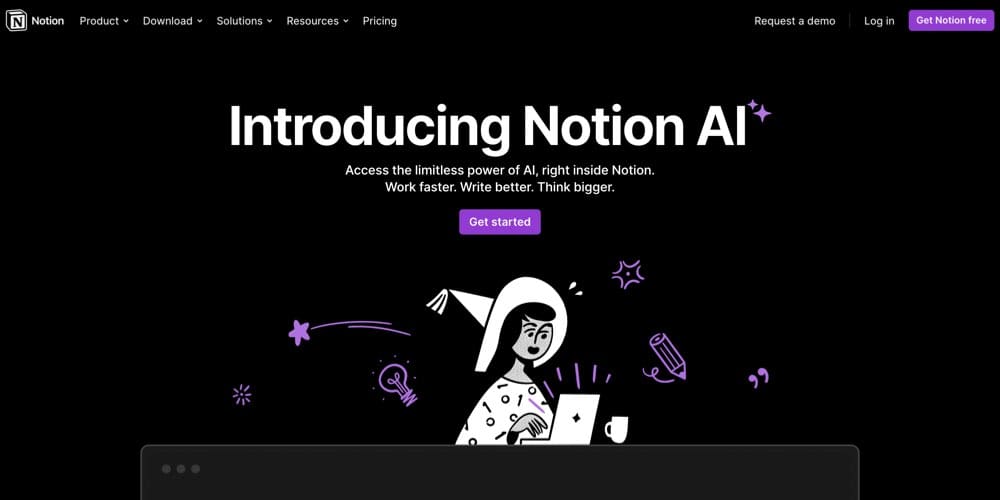
Notion AI is serves as a multifunctional writing assistant, providing a suite of tools to support both individuals and businesses in content creation. It enables businesses to condense content, draft new material, and revise current documents. Additionally, this AI tool can be employed to spark new business ideas.
6.Grammarly
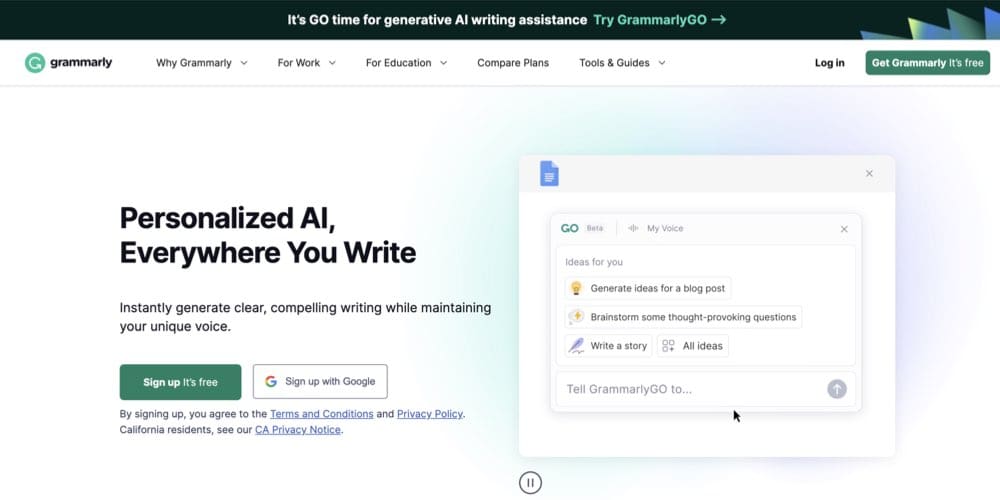
Grammarly is a widely utilized writing assistant tool designed to improve the quality of written content. Businesses utilize Grammarly to refine their content creation processes in multiple aspects. It aids in upholding brand consistency by verifying that all communications adhere to company standards and are devoid of errors.
How to Produce SEO Compatible Content with Artificial Intelligence?

AI not only enhances existing content but also assists in creating fresh content from the ground up, enriching it with supplementary elements. Leveraging NLP and machine learning, AI can generate pertinent, captivating, and unique text, as well as visuals, videos, audios, and other media forms.
For instance, with AI tools such as CopyAI or Jarvis, one can craft engaging titles, introductions, subtitles, summaries, or full articles informed by specific keywords, topics, or prompts. Additionally, tools like Lumen5 or Descript are available for producing or editing videos and podcasts from written content. Similarly, platforms like Canva or Unsplash can be used to create or source striking images and graphics for one’s content.
The Future of AI Content Creation

While AI in content creation is at an early stage, it is poised to become a major force in the future landscape of content generation and search optimization. As AI algorithms grow increasingly sophisticated, they have the potential to produce content that is both more intricate and inventive, offering highly personalized experiences to users.
Nevertheless, it is crucial to recognize that AI-generated content is not set to supplant content created by humans. Despite the speed and efficiency with which AI algorithms can produce vast quantities of content, human editors remain indispensable for imparting the nuance, context, and creativity that elevate content from good to exceptional.
Creating a Content Strategy with Artificial Intelligence

If you’re considering using AI for content strategy, here are 8 different ways to add AI to your content strategy creation process:
1.Research content topics
AI examines data from search engines and social media to identify topics that resonate with your target audience.
By inputting a detailed buyer persona and their needs into the AI, you can prompt it to rapidly generate a plethora of topic ideas. From there, you can select those that align most closely with your content strategy and incorporate them into your editorial calendar.
2.Optimize your content
AI can be harnessed to conduct research on SEO keywords and metadata that correlate with your chosen content topics. Moreover, AI can be tasked with crafting meta titles and descriptions, allowing you to capitalize on its output.
Additionally, AI is adept at analyzing content performance data. By employing AI to compile your analytics and extract vital insights, you can bypass the time-consuming task of manually sifting through data.
3.Create content
AI can be utilized to draft content outlines, headlines, and entire articles. By leveraging artificial intelligence, machine learning algorithms, and natural language processing, it has the capacity to produce a comprehensive blog post in less than five minutes. (It’s important to edit AI-generated content and infuse your personal touch to preclude potential complications, such as Google marking your content.)
4.Organize your content
Certain AI tools are adept at aggregating pertinent content from various online sources. This proves beneficial when crafting content aimed at disseminating information that may be of interest to your audience.
5.Personalize your content
AI has the capability to delve into vast online data repositories, which include information pertaining to your target audience and existing clientele. By examining data points such as demographic profiles, browsing behaviors, needs, and interests, AI can recommend a range of tactics and strategies to customize your content with greater precision.
6.Distribute your content
You can use the analytical power of AI to identify the best days of the week and the best times to distribute your content. Even better, you can use AI to analyze engagement across all of your distribution channels to spot trends and the best channels to run on for maximum reach and impact.
7.A/B test your content
A/B testing enables the evaluation of varying designs, page layouts, and textual content to determine what most appeals to your audience. It can be employed not only to generate AI-assisted variations for testing but also to analyze outcomes and glean insights.
8.Engage customers with chatbots
Chatbots offer a straightforward means for engaging with customers and addressing their issues in real-time. Rather than directing your audience to sift through forum posts or how-to guides, a chatbot can interpret a query and deliver a suitable response.
Advantages and Limitations of Producing Content with Artificial Intelligence

AI-generated content comes with its set of pros and cons. On the upside, it can swiftly produce content in large volumes, which is particularly beneficial for businesses needing to populate their websites or create marketing collateral. Additionally, AI can tailor content to individual users, aligning with their interests and preferences.
However, AI-generated content is not without its drawbacks. Owing to its reliance on pre-existing data and patterns, AI might fall short in crafting content that is genuinely unique or imaginative. Moreover, such content could lack the intricacy and contextual richness that human content creators can offer.
Does AI-Generated Content Improve SEO Organic Performance?

AI technology can automate tasks such as keyword research, content generation, and data analysis, thereby liberating SEO experts to concentrate on more sophisticated tasks like strategy development and optimization.
AI-infused SEO tools offer insightful data on user behavior, search tendencies, and content patterns, equipping professionals to craft and refine content that aligns with their audience’s interests. Furthermore, these instruments can pinpoint areas in existing content that could be enhanced, highlighting optimization opportunities or content gaps.
Nonetheless, when utilizing AI in SEO, it’s crucial to approach it with a deliberate and tactical mindset. Content produced by AI may tend toward the formulaic and may not exude the originality and flair characteristic of human-crafted content. Hence, it’s imperative for SEO specialists to hone abilities that augment AI efforts, such as creative thinking, collaboration, and analytical acumen, to produce content that is not only high in quality but also engaging and impactful for users.
What is E.E.A.T? How to Create Content That Complies with Google Quality Guidelines with Artificial Intelligence

E-A-T is a framework that Google introduced in its Quality Rater Guidelines, playing a pivotal role in how the search engine evaluates web pages, particularly those with the potential to significantly influence a user’s health, safety, or financial stability.
E-A-T stands for:
- Expertise: This pertains to the creator or author’s depth of knowledge concerning the webpage’s subject matter. High-quality content is expected to be crafted by individuals or organizations with demonstrable expertise in the relevant field.
- Authoritativeness: This aspect reflects the content creator’s and the website’s reputation and standing. Authoritative sites are those that have earned trust and are acknowledged within their sphere. Such authority is cultivated through the production of high-quality content, endorsements from reputable links, and affirmative recognition from other esteemed entities.
- Trustworthiness: This element assesses the dependability and credibility of the information presented on the webpage. Users should be confident that the provided information is precise, trustworthy, and devoid of any misleading intent.
In December 2022, Google expanded the E-A-T acronym by incorporating an additional E for Experience, signifying the importance of conveying practical, real-world experience in content creation.
Navigating the contemporary landscape of content creation, particularly with the emergence of generative AI, poses challenges in adhering to Google’s quality assessment criteria. Although AI can enhance productivity, it may struggle to meet SEO benchmarks that require content to exhibit experience, expertise, authoritativeness, and trustworthiness—qualities inherently tied to the human element in content creation.
To align with Google’s quality guidelines, content must not only be informative but also reflect the genuine experience and personal engagement that AI tools are currently unable to replicate.
In February 2023, Google released a document addressing concerns around AI and page quality assessment. The guidance it provided for creators contemplating the use of AI in building content is to prioritize these qualitative aspects.
You may also like this content
- What Can Be Done with Artificial Intelligence?
- ChatGPT: A Comprehensive Guide from A to Z
- How Advanced Is Your AI Expertise?
Follow us on TWITTER (X) and be instantly informed about the latest developments…











